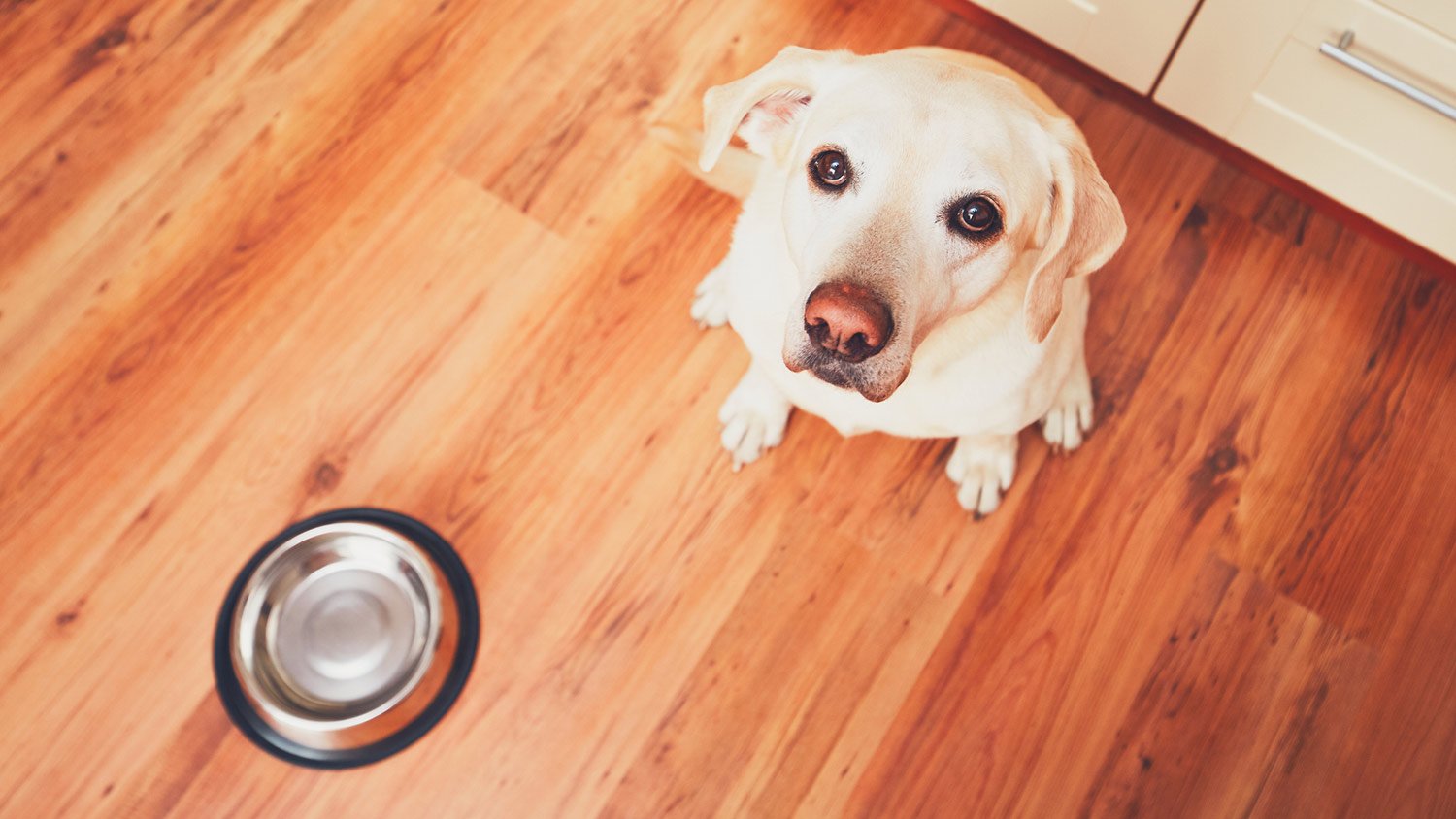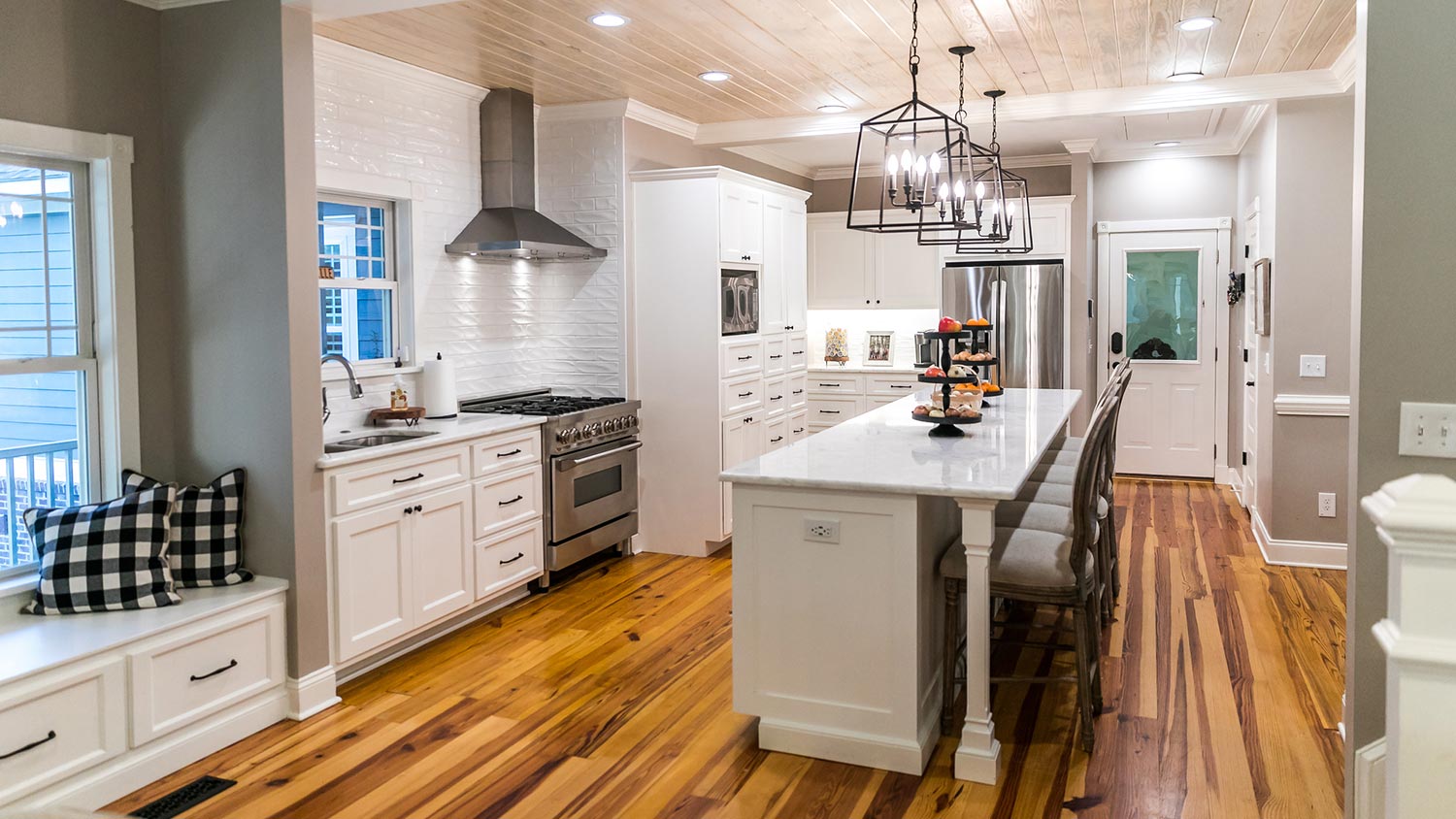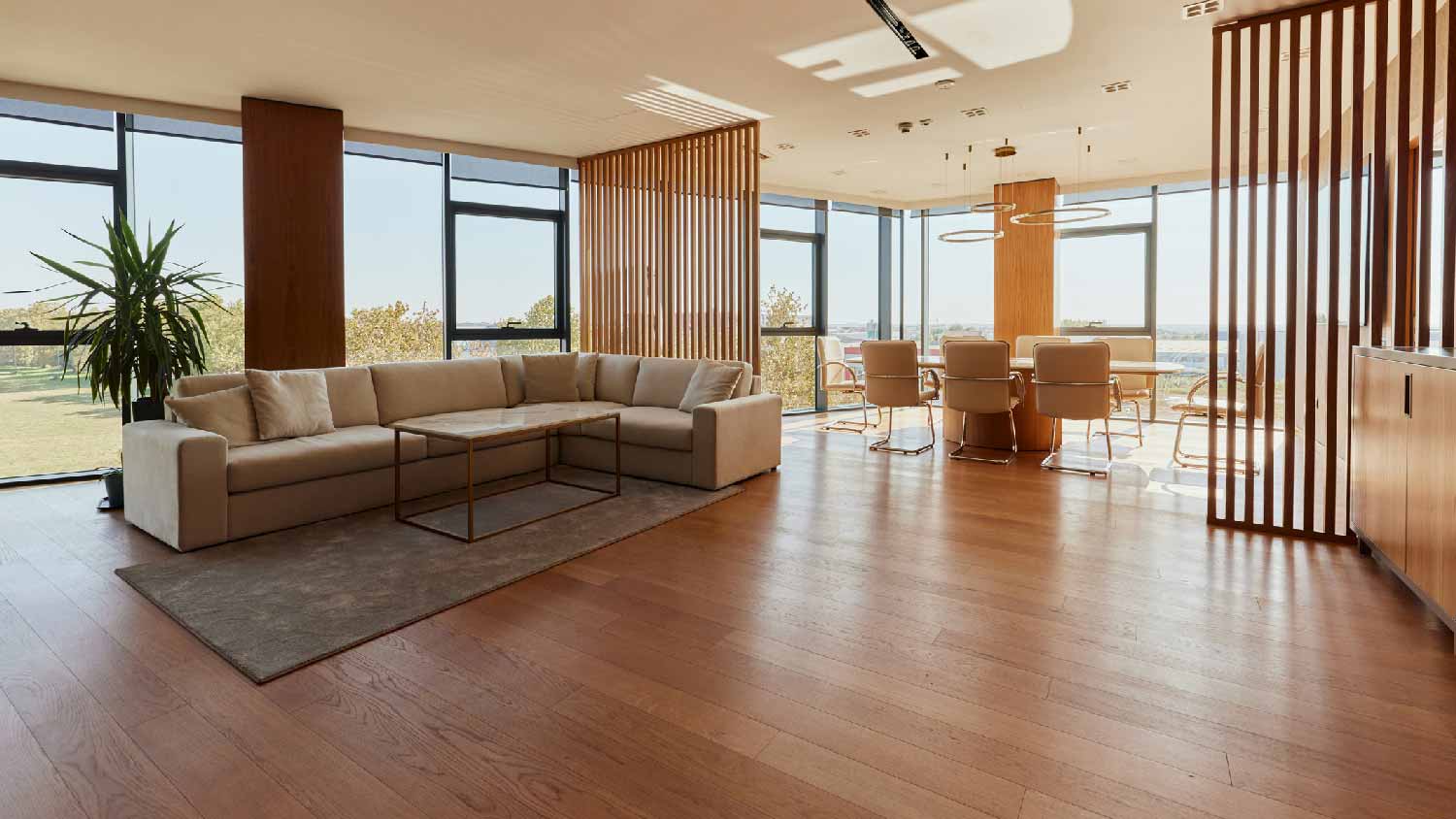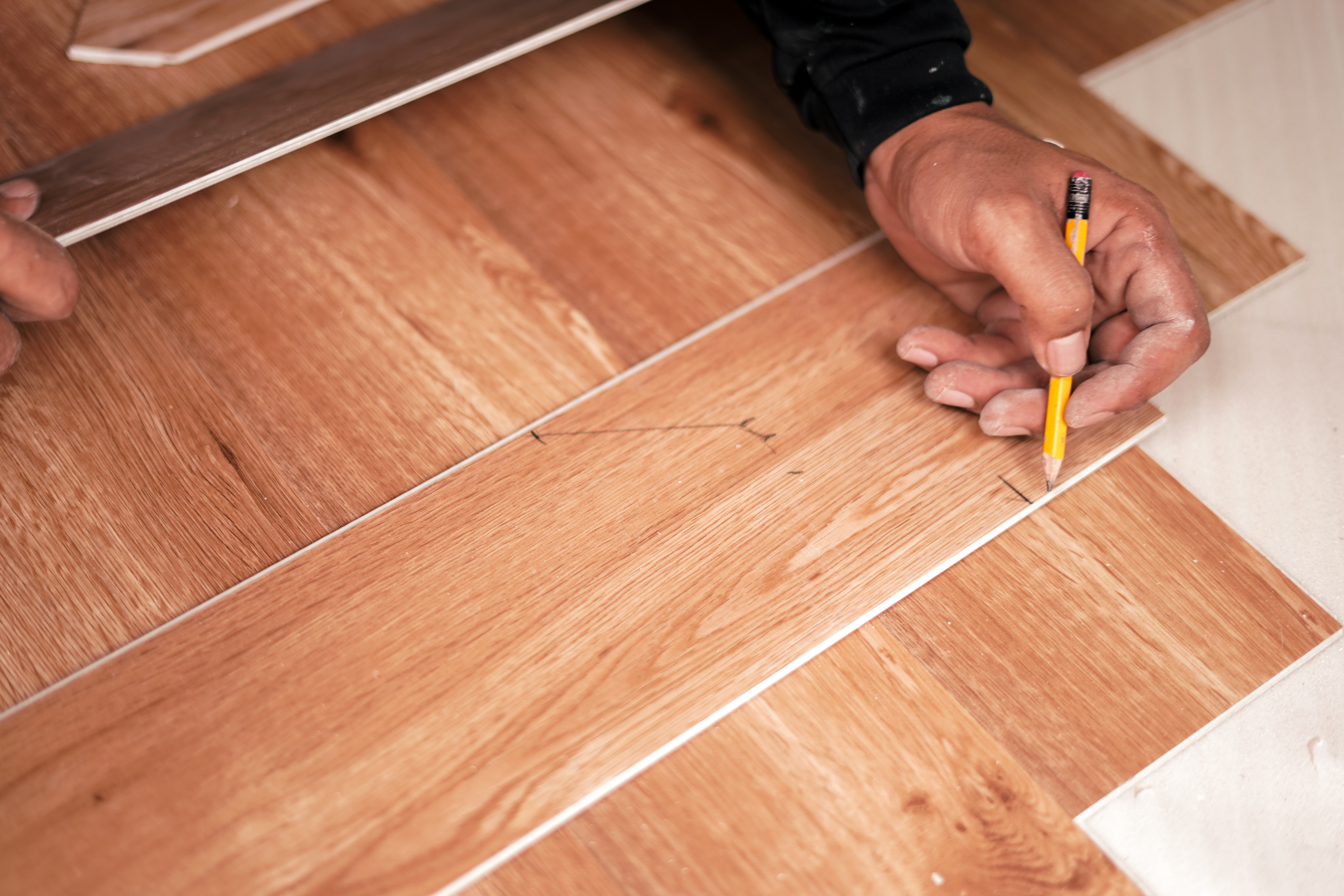
Both materials and labor determine hardwood floor installation costs. This guide breaks down all the prices you need to know before starting your new flooring project.
Hardwood floors need a finish for proper protection, and choosing the right finish depends on the look and performance you want


While every species of hardwood is unique with its own beautiful natural color and texture, all hardwood floors share one thing in common: Each requires a top coat of finish to enhance that beauty and protect it from everyday wear and tear.
There are many different types of hardwood flooring finish, each with distinct advantages and disadvantages. Which is right for your floors? That will depend on the durability, moisture protection, and glossy sheen you want for your home design.
We’ve put together a list of the most popular hardwood flooring finish options and laid out the pros and cons of each so you can make an informed decision.
Not sure how to choose the right hardwood flooring finish for your home? Most hardwood finishes give you a choice of various sheens. When choosing from the list below, take note of the gloss level that each product provides.
Higher gloss options have a brilliant shine, but they also allow for more noticeable scratch marks and scuffs.
Smooth, satin, or matte finishes are all lower gloss, meaning that they reflect less light.
Lower gloss finishes provide the more traditional hardwood look, and their less reflective surface is more practical to care for. They’re also better for people with poor or low vision, as high-gloss surfaces that reflect more light can be harder to see—especially in areas with steps or transitions between flooring.
Made from plasticizers, synthetic resins, and linseed oil, these finishes are very durable and easy to maintain. Best for high-traffic areas that get a lot of use, they are hard-wearing, moisture-resistant, and can be applied without the need for frequent refinishing. All you need to care for an oil-based finish is a broom, vacuum, and occasional damp sponge for tough messes.
On the flip side, the application is intensive. These finishes release strong odors and a high level of dangerous VOCs (volatile organic compounds). You’ll need two to three coats, each requiring about 10 hours to dry. You’ll then need to wait at least two days before walking on your floors in shoes, and four days to put your furniture back.
If you can wait that long, your patience will be rewarded by a surface with a slight amber or yellowish tint that gets warmer over time. Choose from high-gloss, semi-gloss, and satin sheen options, all of which are relatively inexpensive.
Oil-based polyurethane costs about $30 to $40 per gallon, which covers 500 to 600 square feet. You’ll likely pay $1 to $2 per square foot for a pro to do it.

Like their oil-based counterparts, these products contain plasticizers and synthetic resins. However, their water-based makeup provides a clearer surface that doesn’t yellow over time. Choose a water-based polyurethane and you’ll have a smooth, shiny, and highly durable surface.
Application is easy and environmentally friendly, with few odors or VOCs. These finishes dry fast, requiring three to four coats that each dry within four hours. Water-based polyurethane costs about $40 to $60 per gallon, which covers 400 to 500 square feet.
If you do go with one of the more popular high-gloss water-based options, keep in mind that they tend to magnify imperfections like scratches and scrapes. If you want to avoid that hassle, there are also satin and semi-gloss options available.
One of the most durable types of hardwood finish, this is also one of the more complex products to apply. Without the proper skills and experience to do it yourself, you may prefer to call in a local hardwood floor refinishing pro. Originally designed for the lanes at bowling alleys, a moisture-cured surface is extremely tough with a high shine. It will resist moisture, scratches, stains, and other general wear.
What makes it so complex? To dry and cure, it draws moisture from the air. This means that it's affected by humidity on application day, requiring air that’s not too dry and not too humid in order to spread evenly. It also releases a very high level of VOCs that can linger in the air for weeks.
If you’re flooring a commercial space such as a restaurant or dance floor, these complexities may be worth the effort. You’ll likely pay $2 to $4 per square foot for a pro to finish your floors with moisture-cured polyurethane.
Suitable for any type of hardwood, wax has long been the traditional choice and featured on floors like parquet. It offers a low-sheen, natural appearance that darkens over time. There are different types of wax ranging from liquid to paste, but most require several coats to be buffed in by hand. This makes for a labor-intensive application that isn’t easy to replace once it’s down.
Despite the effort required, the application dries quickly and is still simple enough for a DIY hardwood finishing project. Some homeowners like to mix wood stain with their wax to create a colored finish. Exposure to water can create white marks on wax, so we don’t recommend it for a bathroom or kitchen application. However, scratches and scuffs are fairly easy to buff out when they occur.
Hardwood floor wax costs about $10 to $25 per pound. One pound will cover 400 to 500 square feet.

There are two types of penetrative wood sealers available. Solvent-based stains soak into the wood to seal it. More common, however, are natural oil sealers made from linseed and pure tung oil. These penetrating oil sealers improve the hardness of your wood as they dry to prevent damage such as scratches, leaving you with a low-shine finish that highlights your wood grain.
Unlike other finishes, penetrating oils don’t leave a hard protective shell on the floor’s surface, so many homeowners choose to follow up their stain with a final coating of wax. Even with this extra protection, you’ll likely need to recoat your floors every three to five years. This can get expensive.
Oil sealers also require the use of specific wood floor cleaners to prevent the formation of spots from water and chemicals. Despite the high maintenance, oil sealers really bring out the depth of natural wood grain. This lovely natural appearance is ideal if you’re restoring the floors in a historic home.
Penetrative oil sealers cost about $60 to $70 per gallon. One gallon will cover about 500 square feet.
If you have a valuable exotic wood floor or one with an elaborate pattern such as fishbone or parquet, consider this extremely durable option to protect your investment. You’ll also see these finishes referred to as acrylic finishes, conversion varnishes, and Swedish finishes.
These finishes have an alcohol base and use acid for their curing process to create a shiny surface that’s extremely durable and resistant to damage from chemicals, scratches, and scuffs while still highlighting the natural grain and color of the wood beneath.
The curing process can take several days, during which time dangerous levels of VOCs and strong odors will persist. Excellent ventilation and a full-face respirator are needed. This might sound like a hassle, but you’ll be left with a finish that’s up to ten times more durable than polyurethanes and won’t see much damage over many years.
Because of the complexity of the application, many homeowners choose to have acid-cured finish applied professionally. You’ll likely pay a pro between $3.75 and $5 per square foot.
The supreme in wear protection, aluminum oxide is the hardest, longest-lasting type of hardwood flooring finish. This naturally occurring mineral coating will protect your floors from scratches, fading, water damage, scuffs, and more for up to 25 years. You’ll find it in every gloss level to create as much or as little shine as you want.
Note that you likely won’t be applying aluminum oxide yourself. It’s extremely difficult to apply or even touch up, and as such is only available on prefinished wood plank products. If you do experience damage, you’ll need to call a pro or even fully replace your floors. However, it takes a lot to do that type of damage, and maintenance requirements are very low. They’re also better for people with poor or low vision, as high-gloss surfaces that reflect more light can be harder to see—especially in areas with steps or transitions between flooring.
Whether you’re refinishing existing floors or laying down new hardwood flooring planks, choosing the proper finish is key. The right coating will not only perform the way you want but provide a look you’ll be happy with for many years to come.
Start by finding the treatment types that give you the durability and damage protection you need. Then, be sure to choose an option that will give you the perfect shade and sheen to enhance your room design.
From average costs to expert advice, get all the answers you need to get your job done.

Both materials and labor determine hardwood floor installation costs. This guide breaks down all the prices you need to know before starting your new flooring project.

Hardwood floor repair costs depend on the problem. This guide breaks down common costs based on factors like the type of problem, repair method, and whether you hire a pro or DIY.

It’s impossible to keep floors damage-free over the years. Thankfully, the cost to refinish hardwood floors is far less than the price tag to replace them altogether.

Are you wondering whether to choose engineered wood or hardwood flooring? We break down the pros, cons, costs, and differences so you can choose with confidence.

Engineered hardwood floors are an alternative to solid wood, but what if they’re showing wear and tear? We’ll help you figure out whether you can refinish them.

Engineered hardwood vs. LVP flooring: Which is best for your home? We break down the pros and cons to help you make the best choice.